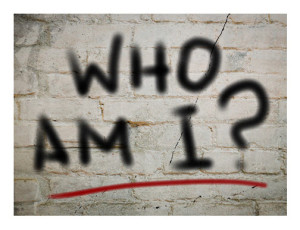No longer top of mind. No longer on the mind. Disappearing from the consciousness of your circles – altogether.
 Does the very thought conjure images of a somewhat dated expression – dying in obscurity?
Does the very thought conjure images of a somewhat dated expression – dying in obscurity?
Are millions of us afraid of dying, or just dying in obscurity?
Might the latter fear be tied to our pop culture tendency to view ourselves as “brands” rather than people with something to say?
I enjoy exploring the linkage between the personal and the professional. I find our stories (and motivations) to be fascinating. Sometimes, I note the similarities in how we conduct our lives and approach our work. And this morning I bumped into an area of overlap that I just couldn’t pass up.
Obscurity Kills Business
A headline from Entrepreneur Magazine caught my eye. It was this: Businesses Die in Obscurity. Do All You Can to Gain Attention.
Written by sales expert and author Grant Cardone, the article reminds us that bringing great products or services to market requires that people know about them.
We need to communicate the right message in the right way to the right targets at the right time. Otherwise, be prepared to be outdone by those who know how to do precisely that. As Mr. Cardone succinctly states: “Obscurity kills businesses.”
And noting those words, I think of the way millions of us are engaged in personal branding, as if personal obscurity somehow kills contemporary self-worth.
Smart Words on Business Success
When it comes to business (and selling), believing in your product or service, much like believing in yourself, is essential. And I found myself nodding at this:
Think of it as your ethical duty to tell as many people as possible about what you do so you can help them… The marketplace doesn’t reward those who play it safe and coast under the radar.
I love the energy, the conviction, the agreeable chutzpah in those lines. Great reminders – not only for business but when it comes to selling ourselves. And of course we sell ourselves – when we plunge into online dating, when we walk into a job interview, when we smile in the Starbucks line, never knowing if we may be meeting a new client.
Mr. Cardone also says: “Money follows attention.” And presumably, that is again the right sort of attention at the right time, and so on.
Branding
I once provided this to a client, drawn from a variety of sources and my professional experience. It is a high level definition of branding.
A brand is the unique promise, personality, and set of expectations that an organization communicates in the marketplace through words, images, and behaviors. A company’s brand reflects its mission, cultural values, and the quality of its products, services, and people. Branding helps the marketplace identify the company in a positive and memorable way.
And what branding does for you?
Branding defines and sustains a differentiated presence in the marketplace that attracts and retains customers.
Who Are You? What Do You Do?
 Key to the success of any venture is communication of who you are, what you do, and the value you bring to your marketplace. This is applicable to toilet bowl cleaners, to pharmaceuticals, to cosmetics, to streaming video services. You name it, and you’ve still got to sell value – from health to hope to entertainment to education. And you’re also selling the reputation behind your goods and services.
Key to the success of any venture is communication of who you are, what you do, and the value you bring to your marketplace. This is applicable to toilet bowl cleaners, to pharmaceuticals, to cosmetics, to streaming video services. You name it, and you’ve still got to sell value – from health to hope to entertainment to education. And you’re also selling the reputation behind your goods and services.
If you’re a physician, a lawyer, or for that matter – an editor or a violinist – you’re selling your personal attributes as part of your reputation – for example, talent, skill, timeliness, work ethic.
So where does that leave us – those of us who write on the Internet or otherwise engage in online conversation? Are we “out there” in support of making money, looking for the buzz that comes with the attention, or both if possible? If we’re having fun (or satisfying other needs) and no one is hurt, does it matter?
Seeking Attention, Seeking Quiet
Mr. Cardone describes attention as follows:
… generating enough awareness that you and your company own the market. Obscurity kills businesses. There are plenty of solid ideas and great products out there. Most don’t know how to get attention and so they disappear.
I suppose we could say the same of our columns and our posts, our online communities and our blogs. It’s the proverbial tree in the forest. If we don’t get attention for ourselves or our endeavors (moneymaking or otherwise), do we feel doomed to disappearance?
But given the online din, aren’t we forced to shout? What if we prefer to speak in low tones, and occasionally to enjoy our relative quiet?
Are You a Brand? Pas Moi
Sure, there are practical realities in the world of marketing. If you write a book, you need an online platform to promote it. If you have any sort of service to offer, you are well advised to shore up your online presence.
But as individuals, are we brands? Why are we blurring the boundaries between organizations and people? How is it that corporations are “persons” and people are brands?
Two exceptions come to mind – the motivational speaker and the politician – though many tell us that personal branding is a path to success in a variety of domains.
As for me, I see myself as a writer, a marketer, an intellectual adventurer. These are elements of what I do – and also who I am. That said, however we identify ourselves, we are always so much more – lovers, spouses, neighbors, friends, parents, children, members of various communities.
Affirmation, Conversation
It’s only natural that we seek affirmation, reassurance and recognition for our value in any of our many roles, and in some instances, that recognition means money.
 Our online venues are critical marketing tools. We know that. But they have also become just one more means to chat with each other, sharing news and insights. That sounds pretty good to me.
Our online venues are critical marketing tools. We know that. But they have also become just one more means to chat with each other, sharing news and insights. That sounds pretty good to me.
In looking at and to our diversity of online platforms, I understand that I could do a better job of branding Daily Plate of Crazy (the cobbler’s children have no shoes). But that isn’t the same as branding myself.
So can we separate branding our work output – as writers, musicians, artists, social commentators, business leaders, job applicants, college candidates and potential dates – from the way we package up the promise and image of who we are – as individuals? Otherwise, aren’t we bound to disappoint or at least mislead, as human beings are so much richer and more complex than any marketplace offering?
Obscurity or Legacy
Now about that “dying in obscurity” thing. Most of us, especially as we grow older, contemplate the legacy we will leave behind. Like most of my friends, I think of my children. I hope my legacy is one of good parenting, good lessons, good words and good works. This is the only way I truly imagine fighting obscurity.
So while I doff my hat to branding in business, and I fully understand the importance of reputation (and public image), I recognize the necessity and the difference between a commercial or organizational venture that requires differentiation, and other motivations for seeking attention.
But in a world that feels increasingly noisy, with competition to be heard escalating in every realm, I will not confuse quiet with obscurity. Nor do I wish to be confused about the legacy that is meaningful to me.
You May Also Enjoy
Business in its truest form in a free market is like war or a competitive sport. You need to have a game face/mask, reputation, and brand to win. That is separate and apart from personal life as a parent, partner, friend or family member.
Dying in obscurity causes me pause as a notion that is a symptom of our increasingly distorted reality based on Pop culture, materialism, narcissism and celebrity-based self worth evaluation process. We are merely part of the greater world. Why isn’t that enough ?